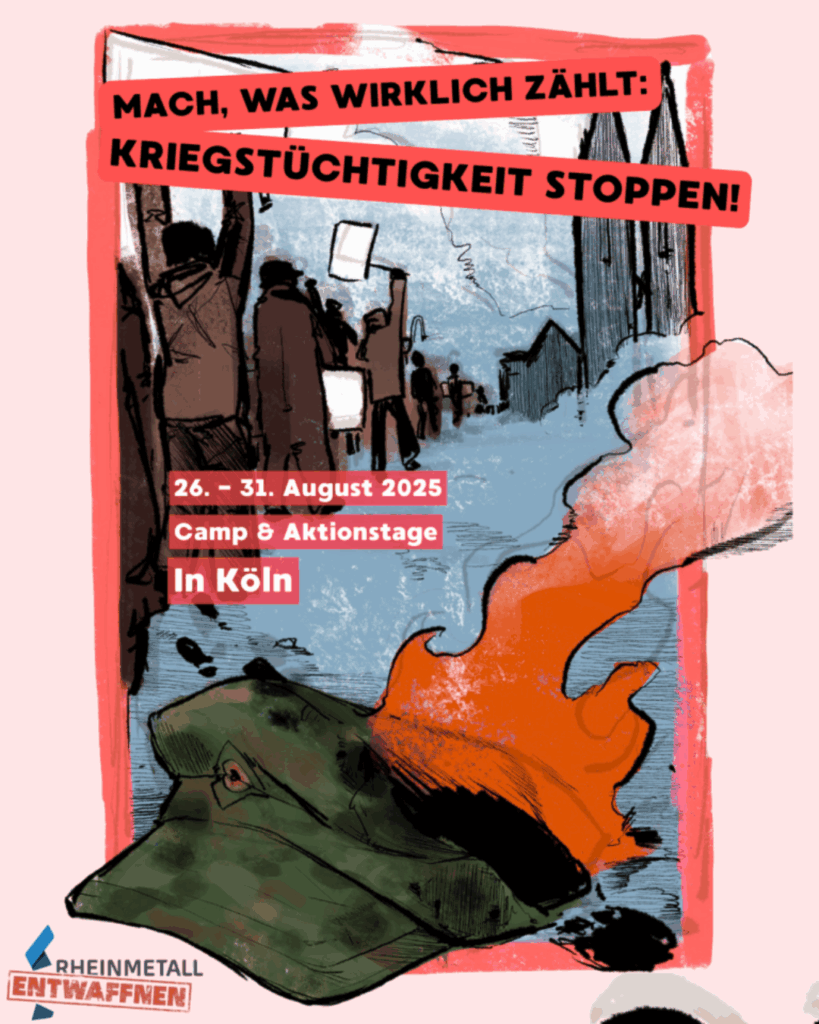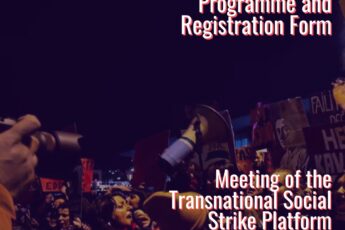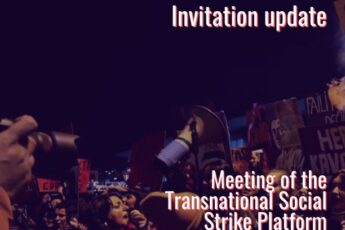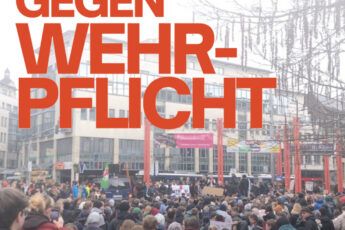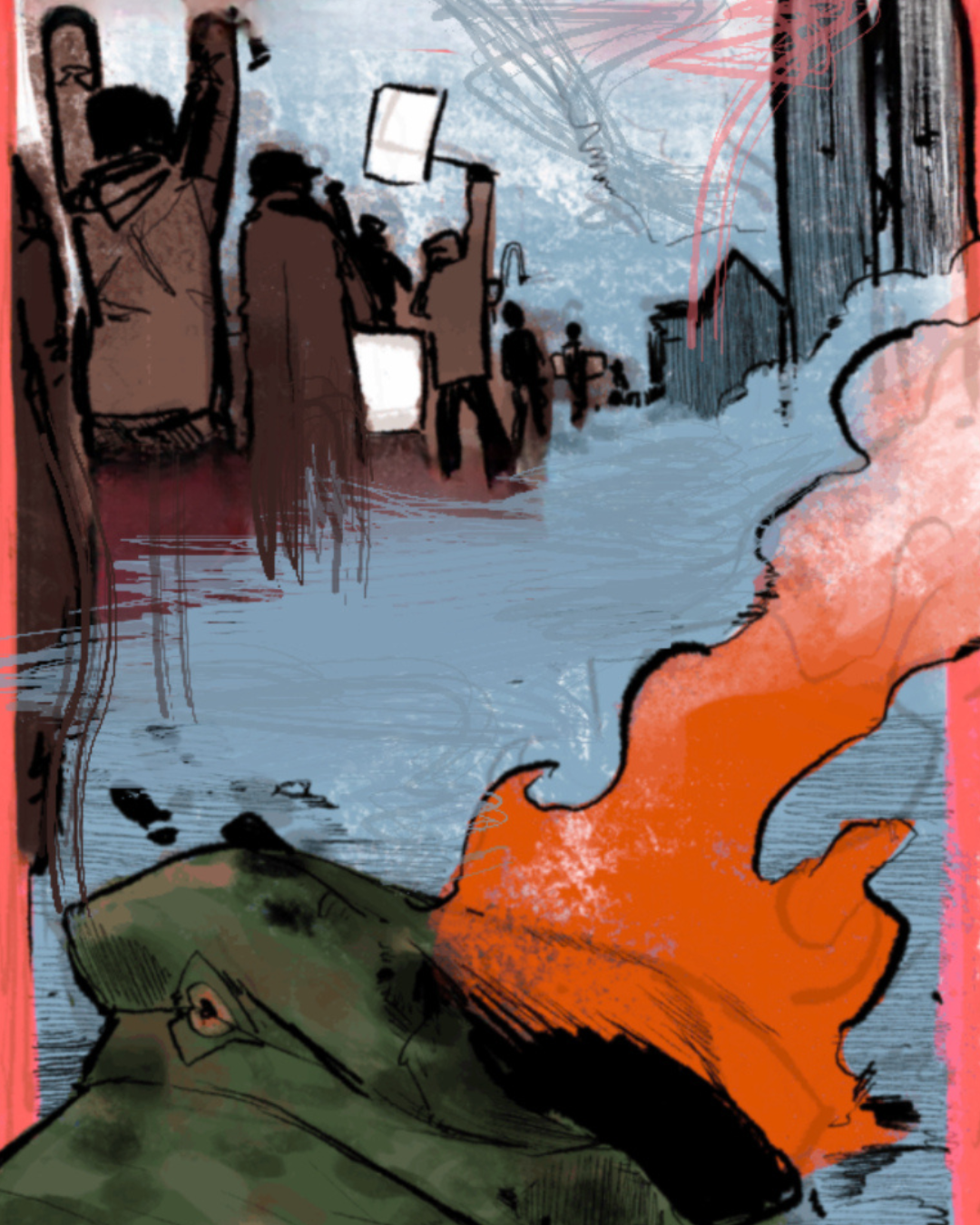
TSSPlatform will take part in the Rheinmetall Entwaffen Camp in Cologne this August. Together with Precarious Connections (Connessioni Precarie – Italy), Interventionist Left (Interventionistische Linke – Germany), and Workers‘ Initiative (Inicjatywa Pracownicza – Poland), we will organize a workshop open to anyone dedicated to deepening our understanding of the current political situation and how to build a transnational organization against the war.
Friday 29.08, from 14:30, Cologne – Germany
Since the Russian invasion of Ukraine in 2022, and with growing intensity following the genocide in Gaza, Europe has entered a period of accelerated militarization. Governments have drastically increased military budgets, announced massive arms procurements, and committed to reaching or exceeding NATO’s 2% military spending target. From Germany’s €100 billion “Zeitenwende” initiative to the NATO accession of Sweden and Finland and the increased militarization across Central and Eastern Europe, this is a trend that cuts across different national contexts. But effects of the global war do not only manifest in state budgets and alliances—they affect social hierarchies and everyday struggles in profound ways.
Besides increased military spending and large arms acquisitions across Europe, we are witnessing a rise in militaristic ideology. The introduction of school programs promoting the army, or the return of the idea of mass conscription, are reviving policies that had been otherwise mostly abandoned. Overall, we see a rise in racist and patriarchal narratives that encourage sacrifice and obedience. Nationalist rhetoric often frames certain racial or ethnic groups as internal threats, justifying exclusionary policies and border violence. The war is used as a justification for more and more violence against migrants. Traditional gender roles are reinforced by calls for women to support the war effort through caregiving or motherhood, while men are expected to demonstrate strength and discipline as soldiers. Workers are asked to sacrifice their salaries and their rights for the sake of the nation-state, while governments cut on social spending in the name of war-time austerity measures. These policies and narratives work together to uphold social hierarchies and suppress dissent. Militarism requires social peace: social tensions, protests, and resistance are suppressed or weakened.
Sometimes, in front of thousands of deaths, and all the effects of this world war, social movements have been drawn into the logic of war and campism, meaning they have taken sides in geopolitical conflicts instead of opposing the logic of war altogether. Divisions over whether to support NATO’s involvement in Ukraine or the Russian anti-Western position, ignored the lives and struggles of millions of workers, migrants, women, and LGBTQ+ people who have been paying the price of the war. Similarly, we have witnessed a downplaying of the genocide in Gaza, where the debate was dominated by reciprocal accusations of supporting either Hamas’s fundamentalism or the Israeli occupation.
While we oppose firmly the ongoing massacre in Gaza and call for the end of the war in Ukraine, we think it is urgent to “reset” our past ways of organizing in order to get ready for the dreadful events confronting us in the future. In this workshop, we want to explore how the war is affecting the daily lives and struggles of various subjects —workers facing job insecurity and exploitation, migrants confronting stricter border controls and racism, women dealing with reinforced patriarchal expectations, LGBTQ+ people fighting for sexual freedom, and those who are going to suffer from climate devastation, while ecological priorities have been wiped off by the economic imperatives of the war.
These changes are not confined by national borders, but are interconnected across Europe and beyond. We think that the campist deadlocks that have prevented us from building a strong opposition to war depend also on our inability so far to develop a truly transnational politics. We usually stop at those very national borders that are the upholds of militarism.
We aim to explore ways to build a transnational politics of peace that actively rejects nationalism, campism, and the prevailing war-driven geopolitical logic. Such a politics would challenge the social peace that militarism demands, by uniting people across borders in solidarity, opposing divisions created by state interests, and refusing to align with any side in conflicts that perpetuate violence.
